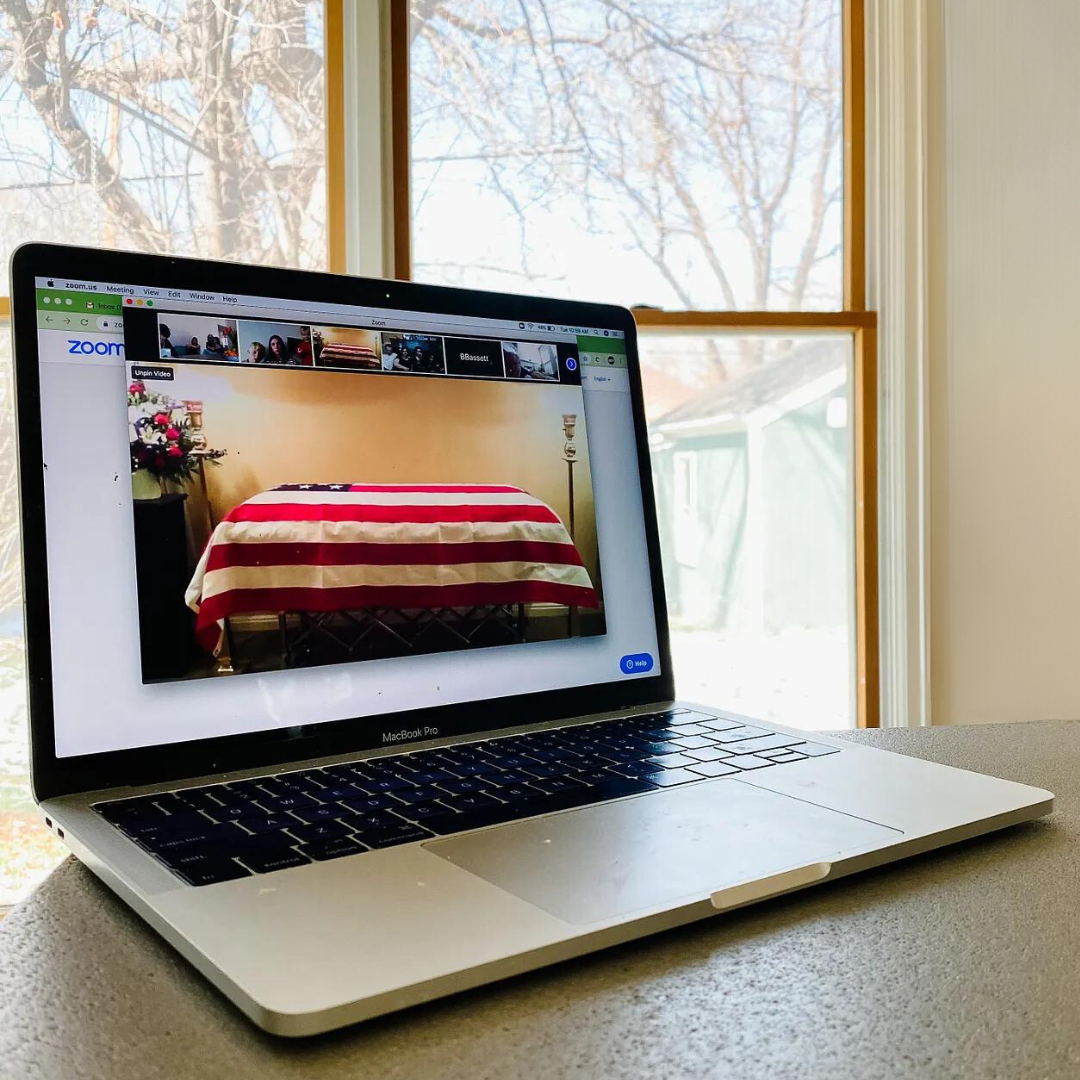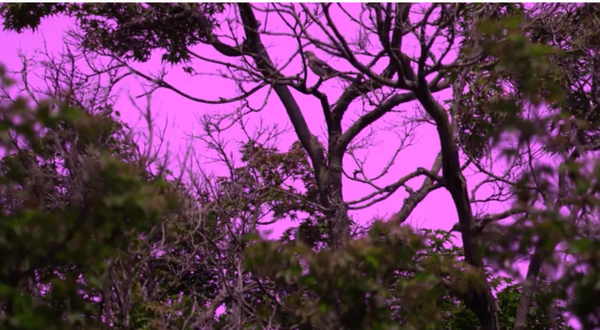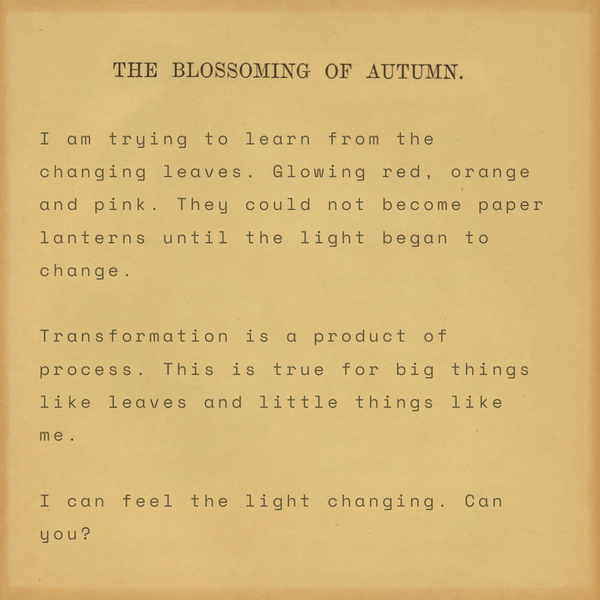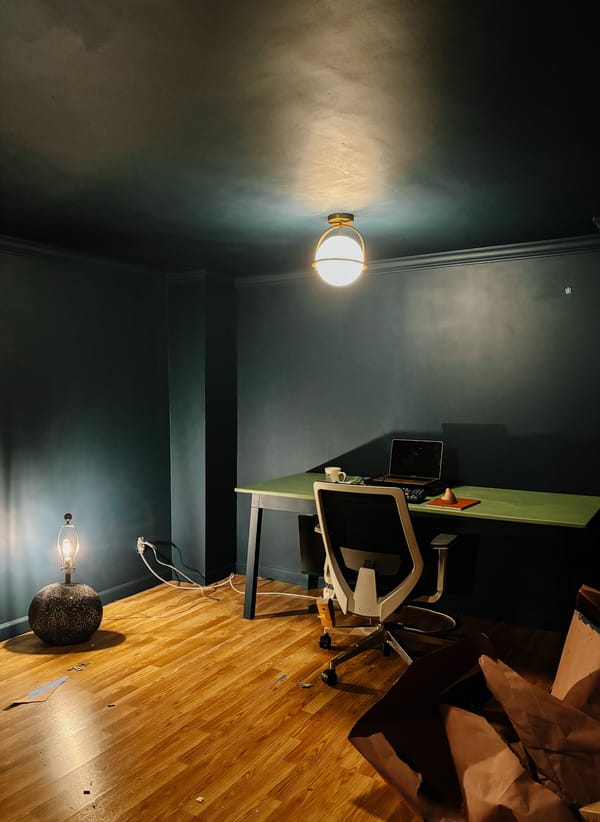What a Zoom Funeral Taught Me About Death
As my daughters and I stared at a livestream of an open casket, I realized death is always remote

Originally published in Human Parts
My eight-year-old saw her first dead body at my grandpa’s Zoom funeral. Zoom has been quite the portal of a platform for my kids. It’s where they go to take classes, talk to friends, and now, attend funerals.
My grandpa didn’t die of Covid-19, but he died during the Covid-19 era. He’d been in hospice for weeks after breaking his hip. Out-of-state visitors were not allowed in his facility so my mom, his out-of-state daughter, had to say goodbye to him over speakerphone. I did, too. It was awkward. I kept thinking of inappropriate jokes my grandpa would have laughed at if he could still laugh. You think the connection is bad now, Grandpa? Wait till you’re dead! He liked weird, dark humor. But it wasn’t just me, the phone, and him. Someone had to hold the phone. They were already witnessing a death on my behalf; I didn’t need to submit them to bad jokes, too. So I just told Grandpa I love him, my girls love him, and that I was so sorry we weren’t there to hold him as he left us. I should have made the joke.
My daughters and I sat around our kitchen table to attend his funeral. When you sign into a Zoom funeral, you are signing on to witness yourself witnessing death. Our little Zoom window hovered above the big window, which livestreamed the open casket. I moved our computer so the camera would capture all of us and a few of the tulips blooming on our table. It helped to see flowers near my girls’ faces as they watched their dead great-grandpa on the screen. I guess I wanted our tiny Zoom window to look like life. The funeral director wore a mask.
There were a few local, socially distancing family members in the room to accompany my grandpa’s body. They moved in and out of the scene as mourners chimed into the videoconference. There weren’t very many chimes. Attendance was kept to children, grandchildren, and the head of grandpa’s church congregation.
My grandpa lived a long time. There were many people who could have filled many more little windows atop the screen. But because of my family’s fear of Zoombombing — a flippant term for an always upsetting, often graphicviolation — our Zoom funeral was as exclusive as it was distant.
My daughters said hello to aunts, uncles, and cousins they couldn’t really remember from the last time we’d all been together for a wedding. I told them to introduce themselves and had them stand up to show everyone how tall they’ve gotten. I stood next to them for scale. We lingered over the introductions, moving across the row of windows the way we’d move down a pew to take our seats in a non-virtual funeral.
I underestimated how difficult it is to comprehend death without touch.
I was putting off the moment when we’d confront what death looks like when it’s overcome a person we love instead of a plant we’ve forgotten to water. But of course, there was nothing to put off. Zoom is a multi-camera experience. Death was right there, the pinned image on all of our screens.
My other grandfather, Poppy, died when I was five. I loved Poppy. I loved the way he talked, the way he walked, the way he smelled — like the oil he’d fry chicken in mixed with a fresh-pressed shirt.
On my last visit to his New Mexico home, he and I spent hours making a wooden boat in his garage. We pieced it together from scraps of wood, nails, a zip tie, and a length of looped twine. When it came time for the sail, he pulled a handkerchief from his pocket, stapled in a seam, and attached it to the mast.
After the boat was built, Poppy asked me what I’d like to name her. I sat down on the garage floor in thought and slapped my hands into the dust when I came up with the most exotic name my four-year-old mind could muster — Melissa. My parents laughed when I told them my boat’s name. Poppy didn’t laugh, he just wrote it firmly across her stern.
That afternoon, my parents took Melissa and me to an irrigation canal on the edge of a Las Cruces cotton field. The steep banks and the water frothing into the culvert at the end of the channel gave Melissa’s maiden voyage an appropriate air of adventure. We’d tied a long string around a nail on Melissa’s port side so I could hold onto her like she was an aquatic kite. My dad set Melissa in the water. I ran alongside her, holding the string as she bobbed and splashed. I was afraid! What if the string snapped and she sailed into the culvert? I was certain that if she entered that dark drain, instead of emerging on the other side of the road, she would be taken out into the open sea.
Even as I held the line, tugging now and then, I wanted the sea for her, just a little. Imagine the places an ocean wind would take her if it blew into that handkerchief! I was relieved when we stopped a foot from the culvert and pulled her out of the water, but I felt a little let down, too. Maybe I’d kept her from something grand.
Poppy didn’t go with us to the canal. He’d been riddled with cancer since before I was born and was tired after all the boat building. He died a year later.
At his funeral, I was overwhelmed by the pressing aliveness. A wood-paneled room, clad in maroon drapes and claustrophobic with cousins, aunts, uncles, and friends of the family. I was too short to see into the open casket, the exact nature of its contents a mystery I couldn’t solve myself. I was sitting alone when my aunt knelt down and whispered in my ear, “Would you like to see Poppy to say goodbye?” How could I say no? I always wanted to see Poppy. She led me to the coffin, hooked both her hands under my arms and lifted me up so I could see.
His face looked plastinated and when I sniffed I couldn’t smell him. My aunt’s fingers dug into my armpits as she steadied us both. I could smell her— perfume and hairspray. She whispered again, “You can touch him, Meggie.” I could touch him? That was allowed? I held onto the edge of the coffin with one hand and touched his folded hands with my other. I drew back quickly. That was no longer my Poppy and those were no longer the hands that made my Melissa. I did not understand how he could have left himself in such a way but I knew, because of that touch, that he was gone.
My aunt put me down and I retreated to a corner where I could be alone and unseen. Five-year-olds aren’t great at hiding. My family came for me, and I was lifted onto laps, patted on the head, rubbed on the arm. When my family could not stare at the prone body of Poppy any longer, they reached for and held their children.
When my eight-year-old wanted to retreat from the Zoom funeral, she simply slipped from her chair and off the screen. No concerned aunt was there to follow her. My family could not hold her and she could not fill their empty arms. She could fill mine, though. I lifted her onto my lap.
Death is always so damn remote.
I underestimated how difficult it is to comprehend death without touch. My daughter could not touch her dead loved one to know he was gone and she could not touch her living loved ones to be reminded they were there. It was all so unsatisfying, which was perhaps the most funereal aspect of the whole thing. Whether I’ve walked through church doors, stumbled out of a cemetery, or simply closed my laptop, I’ve never left a funeral feeling contented. Death is always so damn remote.
Last night, I pulled Melissa out of her box. She hasn’t been in the water since that canal in New Mexico. I’ve never been willing to risk losing her when the shipwright isn’t here to build a replacement. Poppy’s handkerchief is torn now. A nail is loose. But the crooked staples have held and there are no cracks in her hull.
Maybe 31 years between voyages is too long. When we can go outside again, I’ll tie a string around her and show my girls how she can bounce down a stream.




